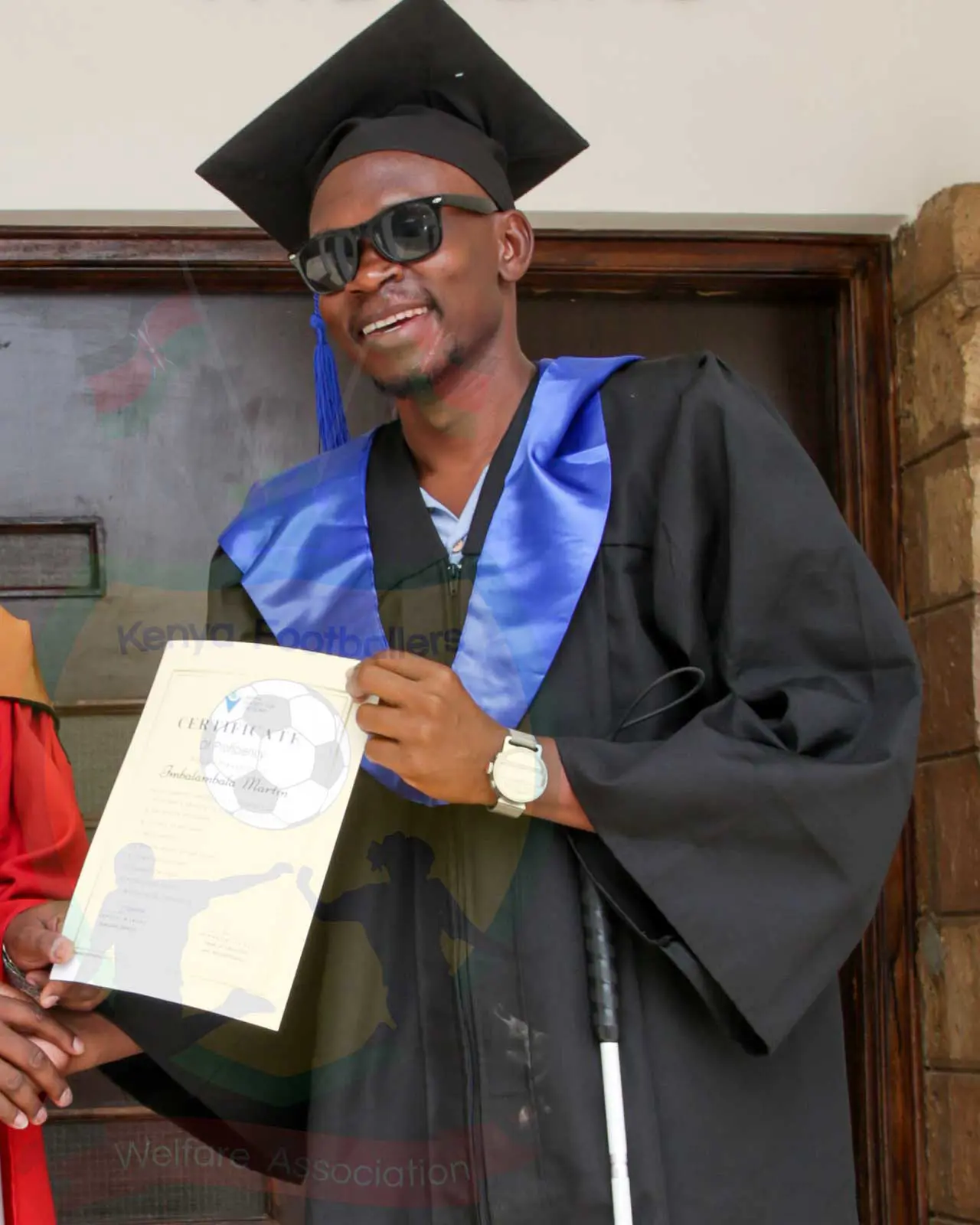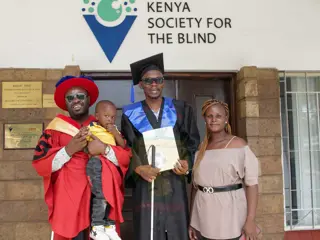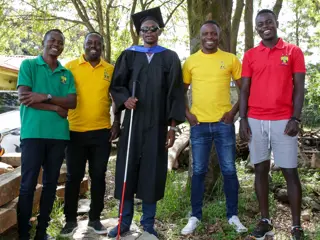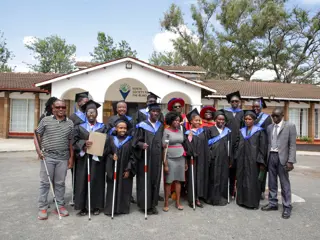Player Story
Martin Imbalambala after turning blind: "Disability is not an inability"
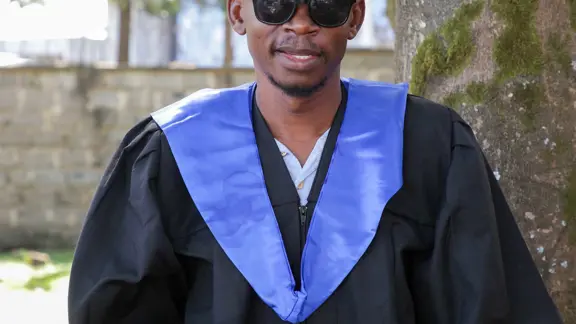
Martin Imbalambala
Former Kenya midfielder Martin Imbalambala was a long-time captain of AFC Leopards. His life changed completely in 2018 when he lost his sight.
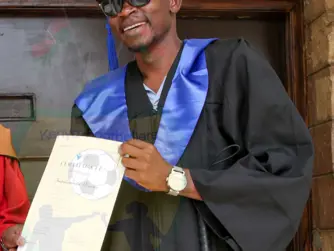
It started after a training session. I had a severe headache. That was around 3pm. I went to hospital and got some medicine, but I still felt bad when I went to bed. My whole body was in pain. When I woke up, I was still in pain. I asked my wife to switch on the lights, but she said they were on. I then asked her to give me my mobile phone. She gave it to me and I asked her why she had switched it off, but she told me it was on. I then realised that my sight had gone.
Losing my sight took one day. It was a bad experience. I went back to hospital and the doctors said they could see nothing wrong. They gave me more medicine and said that my sight should come back in 30 minutes after taking it. But now, five years later, those 30 minutes are still not over…
The thought of being blind never came into my mind. It was only when I was walking around the room and knocking things that I started to realise what was happening. It took time to process. It also took my family time. We were very confused. I didn't know what to do next. I had hoped that my sight would come back – and the doctors were giving me hope that it would come back. They said there was nothing wrong with my sight and that I should regain it. Because of that hope, it took me a long time to accept that my sight would not come back.
One minute I was playing against Mo Salah in an international match and stopping him from scoring, the next I am unable to see.
I would like to thank my wife for supporting me and being with me each and every time I needed her. It is not easy for anyone to be with someone who can no longer do their job. I do appreciate my wife and my family for helping me. They were the ones who stood by me through the long journey, through the difficulties. But now I have accepted it because life has to go on.
When all of this was happening, I was not contracted to a club as I was recovering from a leg fracture. But my former clubs stood by me. I do appreciate they did not leave me alone. They stood by me, from day one until now. But what made it hard is that in Kenya we are not fully professional, so we can’t save when we are playing. For that we need to go abroad. I wanted to go and play in South Africa.
I have received a lot of support from the Kenya Footballers Welfare Association, KEFWA. They helped me with medication and my rent. I did not have a profession when I was playing football, so KEFWA enabled me to go to the Kenya Society for the Blind this year to learn operating computers, computer brail and orientation and mobility. I have since graduated and I am now set to join the KEFWA Secretariat.
At the moment I am also being helped by friends. I am keen to make sure that people with disabilities know that they have representatives even within football. I want to be a good ambassador for people living with disability in football or anywhere else.
I would like to go back to football in some capacity, but it is not easy. One minute I was playing against Mo Salah in an international match and stopping him from scoring, the next I am unable to see.
Now, I can be a motivator for young players who are hoping to become good players. If given a chance, I can talk to former footballers living with a disability and encourage them that disability is not an inability. They can do things, they do not have to just sit around and wait for help.
Not enough is being done in Kenya for people with disabilities and I want to become a champion for them. I encourage everybody living with a disability to come out and accept themselves. The first thing is to accept and move on with your life. Disability is not inability. I also call on those living with people who are disabled, to have that disability in their hearts. Nobody applies to be disabled. So, we have to help them with what they need.
I still have a connection to football. I play blind football and I also go to the stadium to watch games. I have a friend who guides me and then describes what is happening and what is going on, when a team scores. The fans still recognise me and cheer for me in the stadium. It is a good feeling to know that I have not been forgotten.
